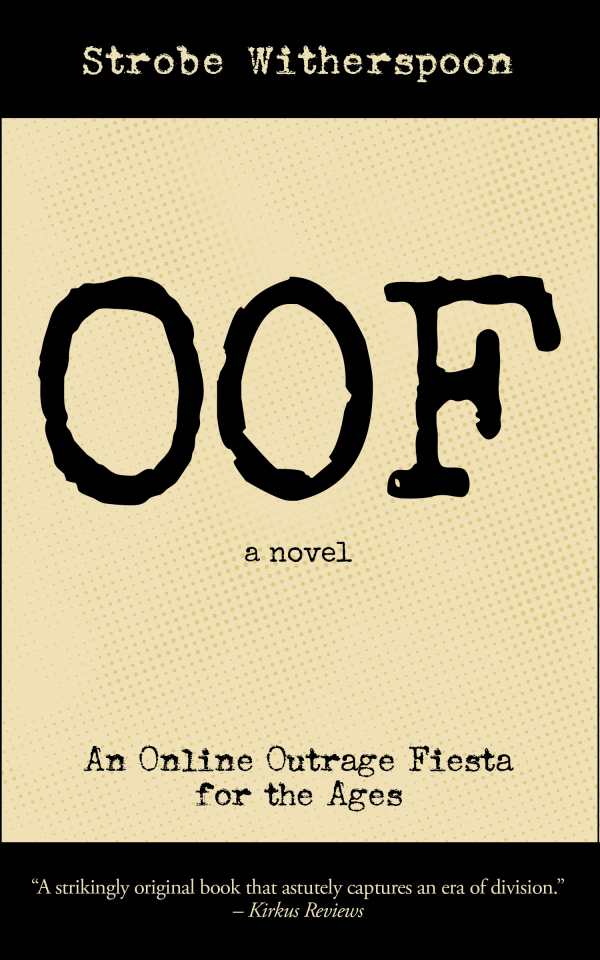OOF
An Online Outrage Fiesta for the Ages
OOF is a sly satire that imagines a world overrun by internet toxicity.
In Strobe Witherspoon’s black comedy novel OOF, a political satirist’s latest project sparks online outrage that leads to a real-world catastrophe.
When Strobe decides to write a parody memoir about an unnamed but recognizable first lady, he doesn’t expect the entire online world to get so upset about it. Or perhaps he does. Despite claiming he has no agenda beyond lampooning people with agendas, it becomes clear that everyone has an angle, whether it be money, attention, love, protection, or human connection.
As outrage about his book spins, and is spun, out of control, Strobe’s career, family, and personal history are caught in the crossfire. What started as political-based anger over the unreleased book becomes a nationwide war between those who defend truth (or who claim to) and those who invent truth. Strobe begins with confidence in himself, and in his position above the fray, but escalating hostility and belated revelations force him to grapple with the lies that he himself has swallowed, spread, and benefited from. At last, the narrative knocks away any refuge or sense of superiority one might have, revealing that everybody is influenced by internet outrage, whether they admit it or not.
Each chapter features the work of a different player in the unfolding drama, from the impenetrable abstracts of academic studies to the ill-written manifestos of anonymous conspiracy mongers. Together, they represent the many ways in which the internet has been weaponized. Here, anyone with the smallest ax to grind finds support and encouragement from fringe groups who demand absolute loyalty, where the slightest whiff of critical thinking is sufficient cause for expulsion. The narrative also exposes the callousness inherent in conspiracy theories, as Strobe’s long-dead brother is dragged through the mud for clicks and profit. Professional publishers and news outlets are also taken to task for profiting off of partisanship.
Lies and hypocrisy run rampant right from the novel’s start, and their proponents become ever further removed from reality, even after it seems the situation cannot become more outrageous. Yet there is always a logic to the illogical: one can see the events, as absurd as they are, build upon each other until they threaten to topple. While some plot lines are unresolved, this is the point: the real world, just like the world depicted in OOF, is at a critical crossroads. No one yet knows the fate of a society in which everyone is complicit and no one is safe.
Told through fictional news articles, book excerpts, and social media posts, OOF is a sly satire that imagines a world overrun by internet toxicity.
Reviewed by
Eileen Gonzalez
Disclosure: This article is not an endorsement, but a review. The publisher of this book provided free copies of the book and paid a small fee to have their book reviewed by a professional reviewer. Foreword Reviews and Clarion Reviews make no guarantee that the publisher will receive a positive review. Foreword Magazine, Inc. is disclosing this in accordance with the Federal Trade Commission’s 16 CFR, Part 255.

